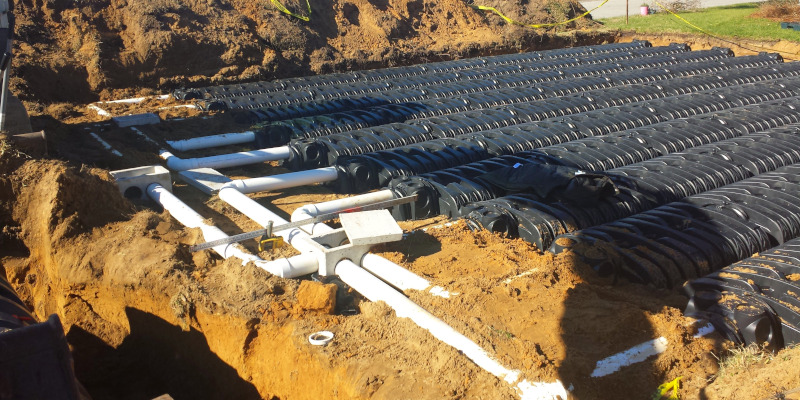As Florida continues to experience rapid population growth and urban development, the need for innovative and cost-effective wastewater management solutions has never been greater. Distributed Wastewater Treatment Units (DWTUs) offer a modern, scalable alternative to traditional centralized systems, providing a range of economic benefits that can appeal to developers, policymakers, engineering firms, and homeowner associations alike.

Here’s why distributed wastewater treatment systems are not just an environmentally friendly choice but also a smart economic investment for Florida’s future.
1. Lower Infrastructure Costs
Traditional centralized wastewater systems require extensive underground piping, pumping stations, and large-scale treatment facilities, which can represent a significant upfront investment.
In contrast, DWTUs eliminate much of this expense by treating wastewater on-site or near the source. This approach dramatically reduces the need for large-scale infrastructure, lowering initial development costs for developers and municipalities. For new communities or infill developments in areas where centralized systems are unavailable or costly to extend, distributed wastewater treatment systems offer a financially viable alternative.
2. Scalable Solutions for Growing Communities
Florida is one of the fastest-growing states in the U.S., with an increasing demand for residential and commercial development. DWTUs are inherently modular, allowing developers to scale wastewater solutions alongside community growth.
Instead of overbuilding centralized systems that may take years to fully utilize, DWTUs can be deployed incrementally, matching capacity to actual demand. This scalability minimizes wasted resources and ensures developers can allocate funds more effectively.
3. Operational Savings
While centralized wastewater treatment plants can be expensive to maintain and operate, DWTUs are designed to be cost-efficient:
- Energy Efficiency: Advanced distributed wastewater treatment systems consume less energy per gallon treated compared to traditional centralized plants.
- Simplified Maintenance: Routine maintenance for DWTUs is localized and often less complex, reducing ongoing operational costs.
For municipalities and homeowner associations, these savings translate into lower utility bills and more predictable budgeting for wastewater management.
4. Resilience and Risk Mitigation
Florida’s unique geography—characterized by low elevation, porous limestone bedrock, and vulnerability to flooding—makes centralized wastewater systems more prone to overflows and failures. Such events can lead to costly fines, lawsuits, and environmental remediation expenses.
DWTUs, by contrast, offer a decentralized approach that minimizes the risk of catastrophic failures. By distributing treatment capacity across multiple smaller units, communities are better protected against costly disruptions, ensuring a reliable and resilient wastewater infrastructure.
5. Enhanced Property Value and Marketability
For developers, installing DWTUs can directly enhance the marketability of a project. Modern DWTUs are discreet and can be seamlessly integrated into the landscape, preserving the aesthetic appeal of residential or commercial properties.
Moreover, environmentally conscious buyers and investors increasingly seek developments that prioritize sustainability. Highlighting the use of innovative DWTUs as a green infrastructure feature can attract a premium market segment while adding long-term value to the property.
6. Leveraging Incentives and Grants
Florida offers various financial incentives to promote sustainable development, including grants, tax credits, and low-interest loans for environmentally friendly projects. Developers and municipalities implementing DWTUs can often take advantage of these programs to offset initial costs.
Additionally, Florida’s focus on protecting sensitive ecosystems such as wetlands and aquifers makes DWTUs a favorable option for meeting stringent regulatory requirements without incurring costly penalties.
7. Job Creation and Economic Growth
Investing in DWTUs doesn’t just save money—it stimulates economic activity. The design, manufacturing, installation, and maintenance of decentralized systems create local jobs and drive innovation in wastewater technology.
By fostering a robust industry around DWTUs, Florida can position itself as a national leader in decentralized wastewater solutions, attracting additional investment and expertise to the state.
A Path to Economic and Environmental Harmony
Distributed wastewater treatment systems represent an opportunity to align Florida’s economic goals with its environmental responsibilities. By reducing infrastructure costs, enabling scalable development, and delivering operational savings, DWTUs offer a compelling value proposition for stakeholders across the state.
For Florida’s developers, policymakers, engineering firms, and homeowner associations, the choice is clear: investing in DWTUs is not only a commitment to sustainable development but also a strategic move toward economic efficiency and resilience.
Let’s embrace the future of wastewater management and unlock the full potential of DWTUs to build a more prosperous and sustainable Florida.
